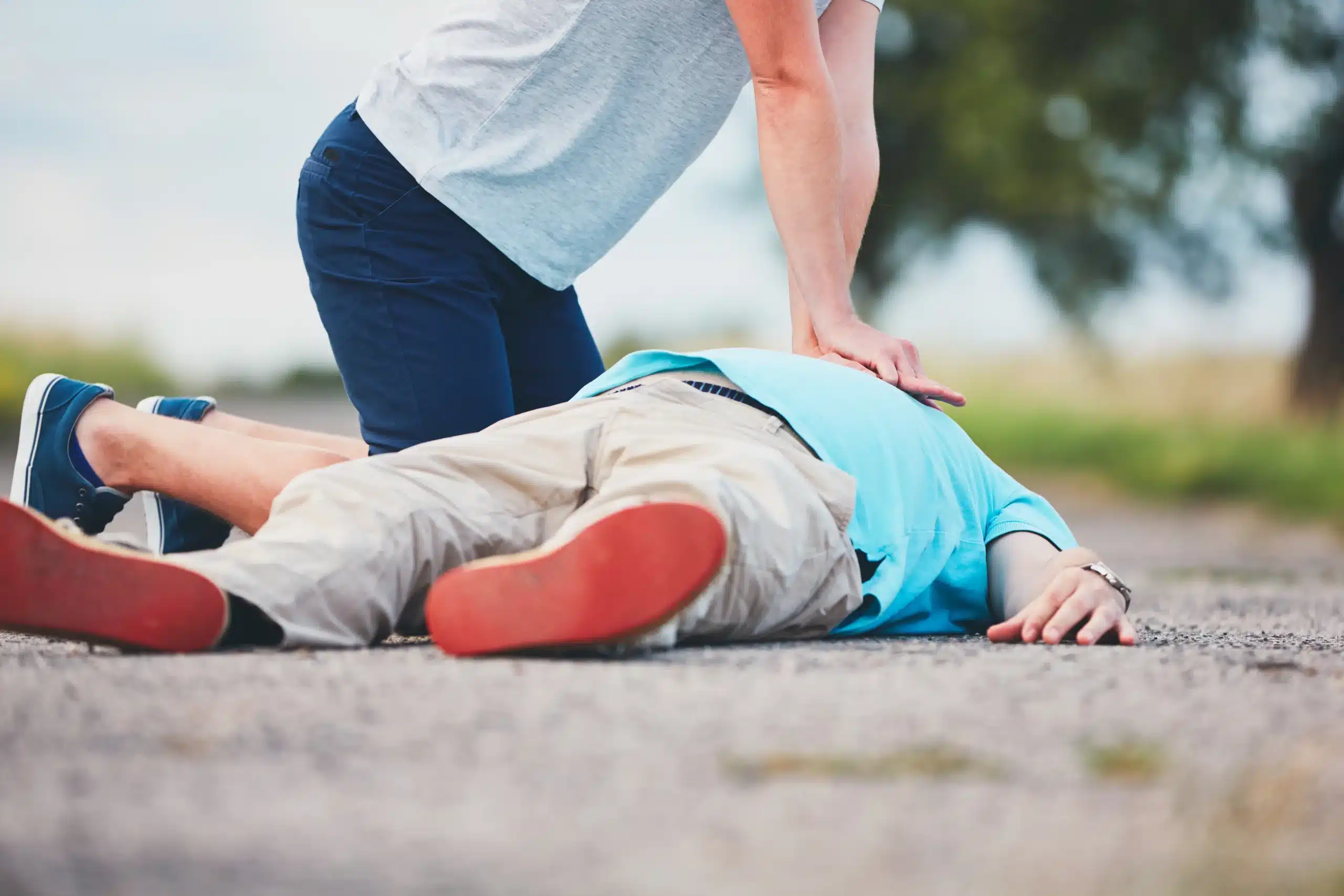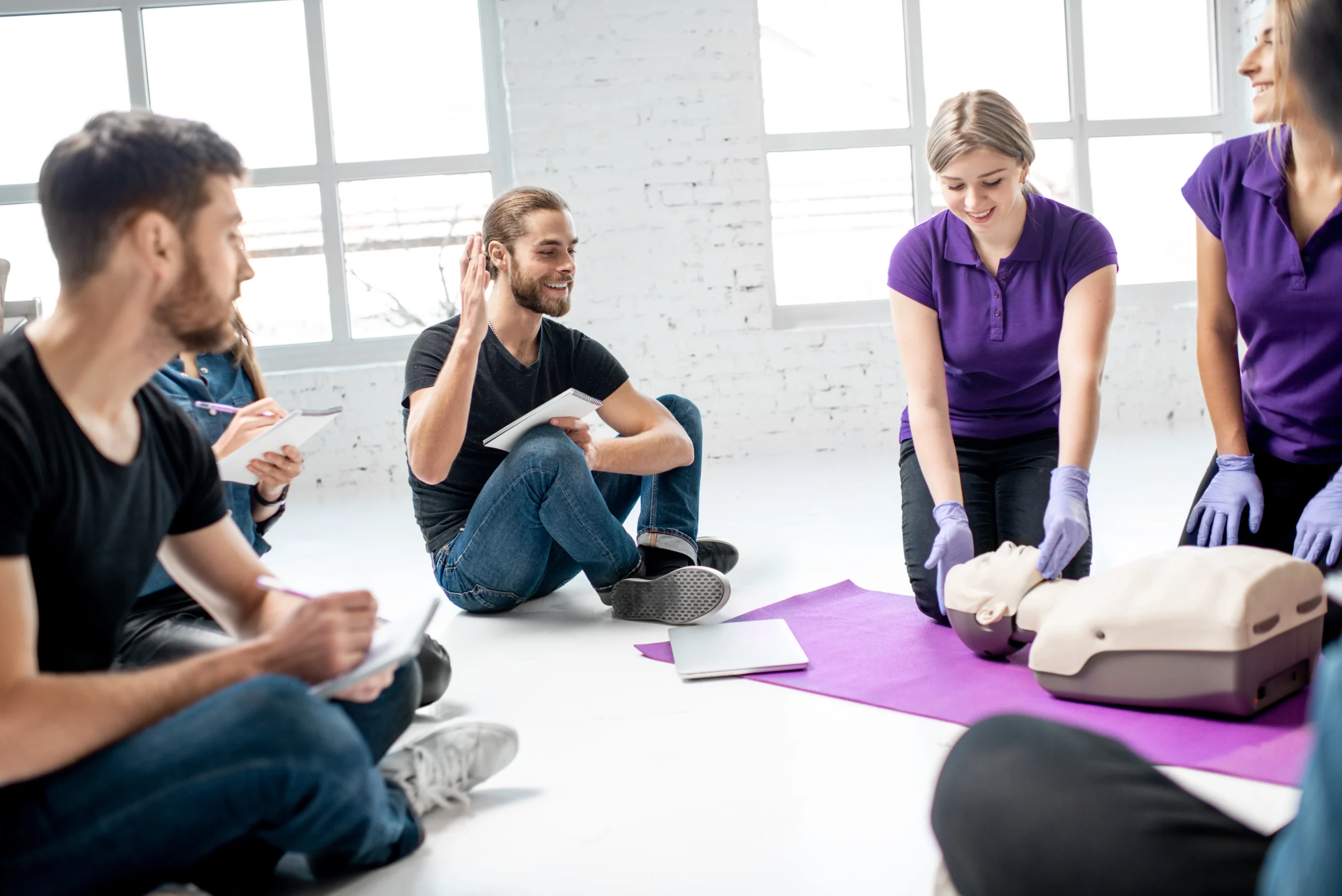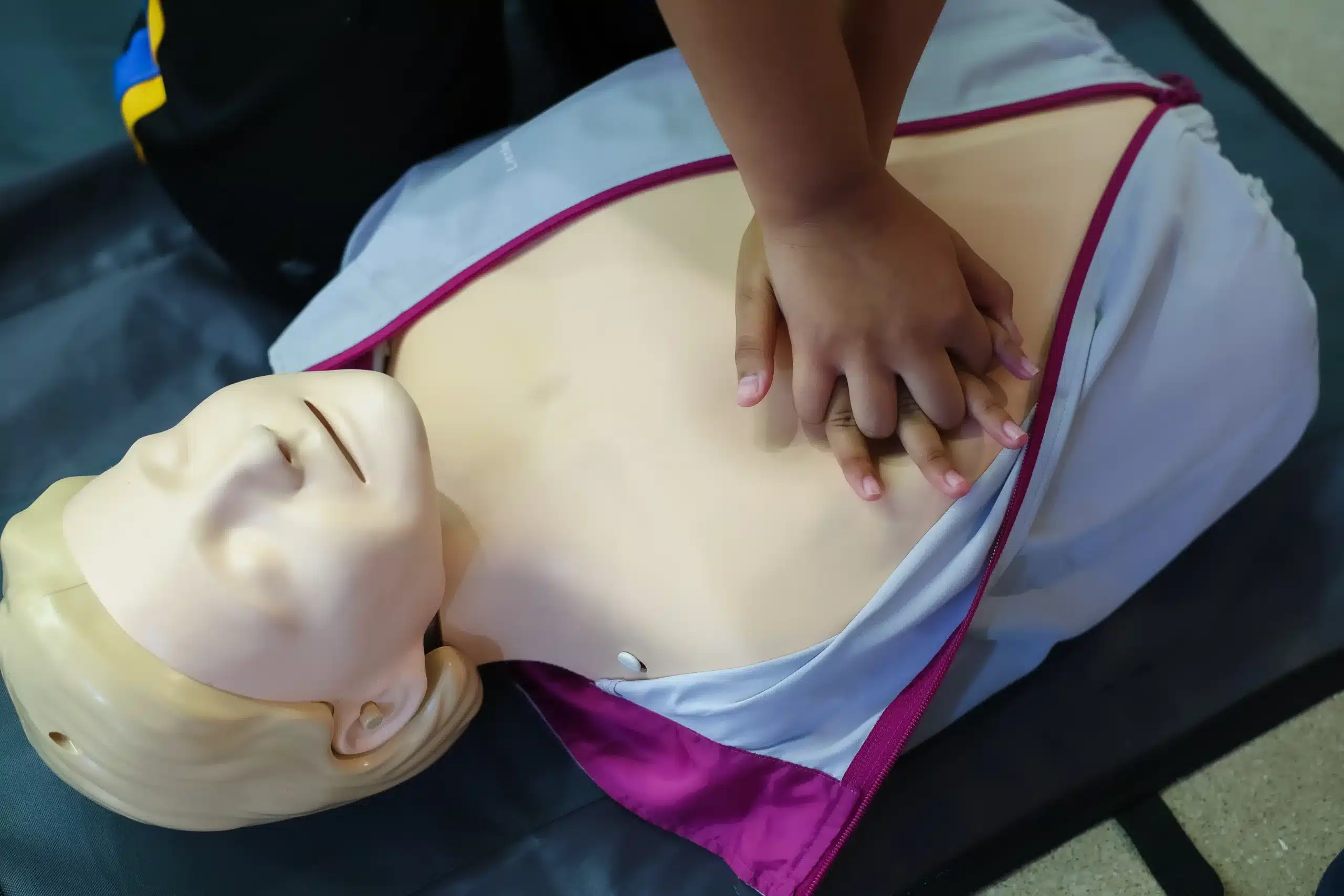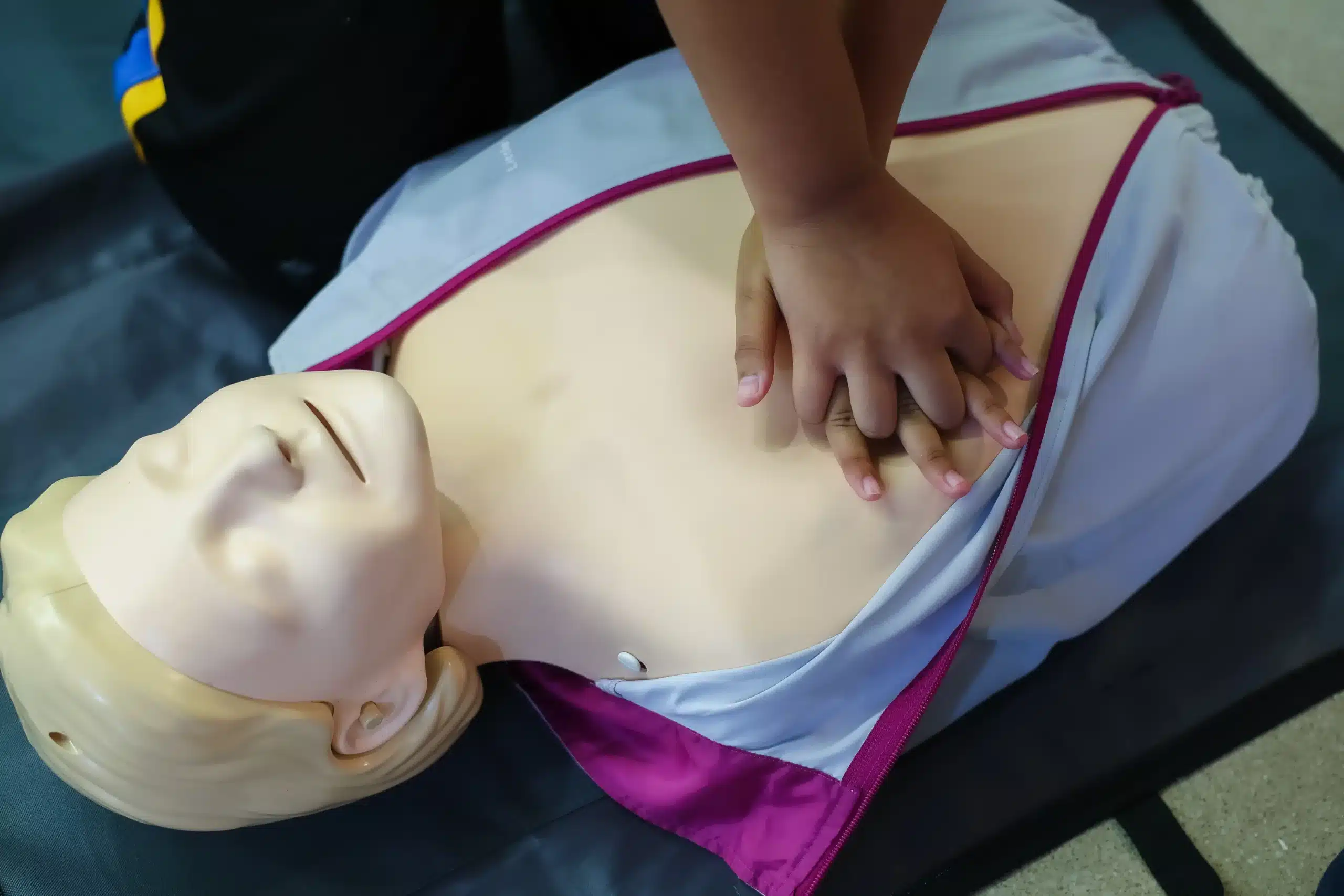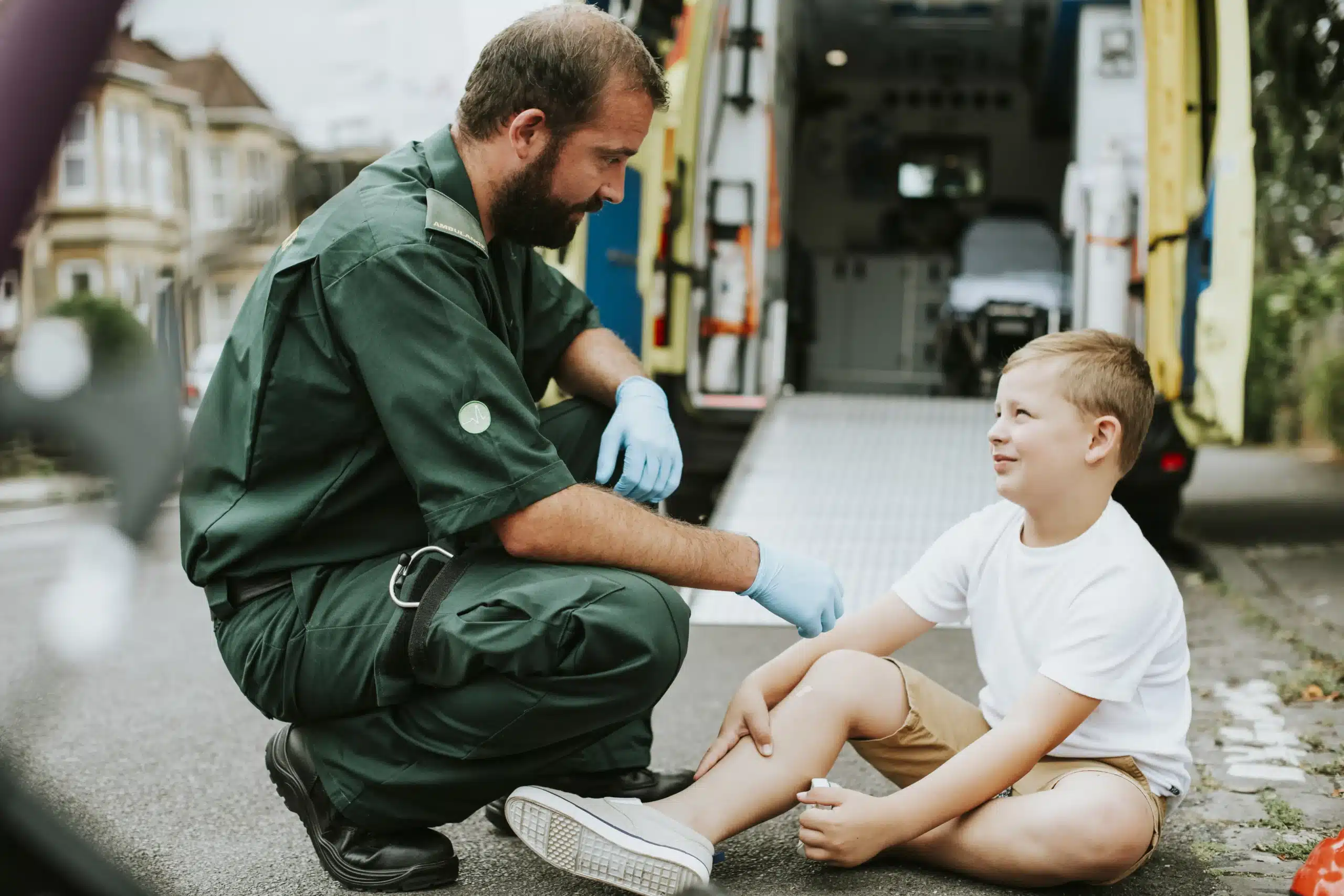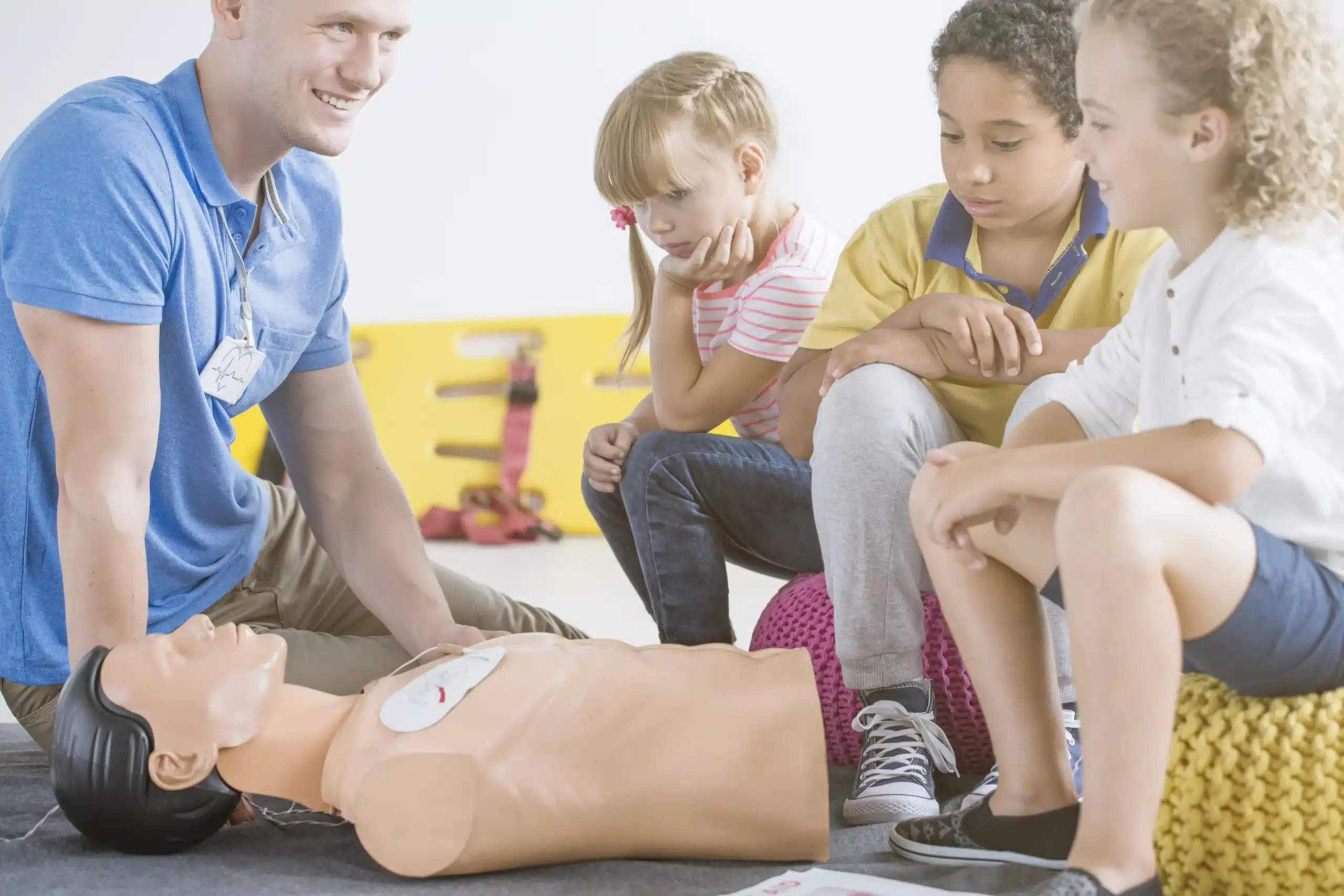Working as a home caregiver in Petaluma comes with immense responsibility. You’re not just providing companionship and support; you’re entrusted with the health and safety of vulnerable individuals. In a medical crisis, your quick thinking and actions can be life-saving. That’s why CPR certification for home caregivers in Petaluma is so essential. This guide will walk you through the process of getting certified, from finding the right course to understanding the costs and maintaining your skills. We’ll explore the various CPR certification options available in Petaluma, including those offered by Safety Training Seminars and HealthQuest CPR, and discuss the importance of AHA certification. Get ready to empower yourself with the skills and confidence to handle emergencies effectively.
Key Takeaways
- CPR skills empower home caregivers: Being prepared for emergencies brings confidence and the ability to respond effectively, potentially saving a life. Choose a course covering adult, child, and infant CPR, AED use, and essential first aid.
- Finding the right CPR course in Petaluma is easy: Explore local providers like Safety Training Seminars and HealthQuest CPR, considering factors like accreditation, hands-on practice, cost, and schedule.
- Stay current with your CPR certification: Regularly refresh your skills and knowledge to maintain preparedness. Check renewal requirements and consider continuing education opportunities to stay up-to-date with the latest guidelines.
Why CPR Certification Matters for Home Caregivers
As a home caregiver, you play a vital role in ensuring the well-being of those in your care. While we all hope emergencies never happen, being prepared to handle a crisis, especially cardiac arrest, is essential. CPR certification gives you the skills and confidence to respond effectively in such critical situations. The Red Cross emphasizes that “CPR dramatically increases the chances of survival from cardiac arrest,” and that bystander CPR can double or triple survival rates. Every minute without intervention decreases the chance of survival, so immediate action is critical.
Beyond CPR, knowing how to use an Automated External Defibrillator (AED) can significantly improve outcomes. HealthQuest CPR notes that “CPR and AED use dramatically increase survival rates to almost 70%.” These combined skills can truly make a difference in life-threatening situations. For home caregivers in Petaluma, CPR certification isn’t just about getting a credential; it’s about developing the confidence and competence to respond effectively. As we’ve highlighted in our EMSA Courses Petaluma guide, it’s about building the skills and assurance you need to act decisively and potentially save a life. Knowing you have the training to handle these situations brings peace of mind to both you and those you care for.
What are My CPR Certification Options in Petaluma?
Choosing the right CPR certification course can feel overwhelming with so many options. This section clarifies what to look for and highlights readily available courses in Petaluma.
Available CPR Courses
Petaluma caregivers have several CPR certification choices. Safety Training Seminars offers a range of American Heart Association (AHA) certified courses, including BLS, ACLS, PALS, CPR, and First Aid. With classes offered daily, finding a convenient time shouldn’t be a problem. Their basic CPR course covers core skills like adult, child, and infant CPR, AED use, and basic first aid, currently priced at $89. They also offer add-ons like the AHA Pediatric course, which is EMSA-approved for childcare providers.
Another option is HealthQuest CPR. They’ve been providing AHA-authorized CPR training in the North Bay area for almost 50 years.
Accreditation and Recognition
Choosing an accredited and recognized CPR course is essential. The AHA is a leader in CPR training, and their certification is widely accepted. Both Safety Training Seminars and HealthQuest CPR offer AHA-certified courses, ensuring your training meets national standards. This gives you the skills and the confidence to act quickly and effectively in an emergency. AHA certification is valuable for any home caregiver.
Best CPR Certification Providers for Home Caregivers
Finding the right CPR certification provider is crucial, especially for home caregivers. Here are a few reputable options in Petaluma:
Safety Training Seminars
Safety Training Seminars offers American Heart Association (AHA) certified courses, including BLS, ACLS, PALS, CPR, and First Aid. They focus on providing convenient, high-quality training in Petaluma and surrounding areas like Rohnert Park and Novato. Daily classes make scheduling easier for busy caregivers. They also offer a low price guarantee and discounts for group classes.
American Heart Association
While not a provider itself, the American Heart Association sets the standards for CPR training. Look for providers offering AHA-certified courses to ensure your training meets national guidelines and is widely recognized. AHA certification is often preferred by healthcare facilities and professional organizations. Safety Training Seminars, mentioned above, is one local provider offering these AHA-certified courses.
American Red Cross
The American Red Cross is another well-known option for CPR certification. They offer various courses, including CPR/AED training, in formats like in-person, online, and blended learning. Their in-person classes provide hands-on training and result in a two-year certification, making them a practical choice for home caregivers needing a flexible learning approach.
HealthQuest CPR
HealthQuest CPR, a part of Healthy Petaluma, provides CPR, First Aid, and AED training throughout Sonoma County. They prioritize hands-on learning with a one-mannequin-per-person policy. This focus on practical skills makes their training especially valuable for home caregivers who need to feel confident responding to emergencies.
Course Formats and Duration
As a home caregiver in Petaluma, your schedule is likely demanding. Thankfully, CPR certification courses come in several formats, so you can find one that fits your needs. Let’s explore the most common options: in-person training, online certification, and hybrid learning.
In-Person Training
In-person CPR training offers hands-on learning with a certified instructor. This format allows you to practice techniques on mannequins and ask questions in real-time. Organizations like HealthQuest CPR, a long-time provider of CPR training in the North Bay, offer in-person classes. These classes emphasize the importance of CPR and First-Aid skills, reflecting Petaluma’s focus on emergency preparedness, as highlighted by Bay Area CPR. In-person training provides a structured learning environment and personalized feedback, ideal for those who prefer a traditional classroom setting.
Online Certification
Online CPR certification offers flexibility for busy caregivers. You can complete the coursework at your own pace, from anywhere with an internet connection. Providers like Safety Training Seminars offer online certification, covering essential topics like AED use, bleeding control, and how to handle seizures. While online courses typically cover the same core material as in-person classes, the online portion generally takes two to three hours, depending on your reading speed and prior knowledge. Keep in mind that online-only certification may not meet all workplace requirements, so check with your employer or state licensing board.
Hybrid Learning
Hybrid learning combines online coursework with in-person skills practice. This format often involves completing the cognitive portion online, then attending a shorter in-person session to demonstrate your skills and receive your certification. Safety Training Seminars offers various course formats, including hybrid learning, for certifications like BLS, ACLS, and PALS. The American Heart Association’s RQI program is another example of a hybrid learning model, designed for medical professionals seeking efficient recertification. This blended approach offers a balance of flexibility and hands-on experience.
CPR Certification: Costs and Value
Getting CPR certified doesn’t have to break the bank. Understanding the costs associated with different CPR certifications, along with available discounts, can help you find a course that fits your budget.
Average Petaluma Prices
CPR certification costs in Petaluma vary based on the provider and the type of certification you need. For a basic, comprehensive CPR class, you can expect to pay around $24.99. BLS Healthcare Provider Certification, a more advanced course, typically costs around $34.99. These competitive prices make acquiring these vital life-saving skills accessible to home caregivers and others. For more information on CPR certification costs, check out our guide to CPR certification near you. Safety Training Seminars also offers a BLS course starting at $100, including your certification card. This comprehensive option provides excellent value. For additional details on EMSA courses and pricing, see our EMSA guide.
Discounts and Group Rates
Want to save even more? Many providers offer discounts, especially for students and groups. Petaluma CPR Classes has exclusive student discounts, taking $15 off American Heart Association BLS CPR courses. This makes it easier for students to gain essential CPR skills affordably. If you’re with a larger group, like a home care agency, and need to certify multiple staff members, contact Safety Training Seminars. They offer various CPR and first-aid courses and often provide discounted rates for groups. This is a smart way to ensure your entire team is prepared for emergencies.
Essential CPR Skills and Knowledge
CPR certification equips you with the skills to respond confidently during emergencies. Understanding the core components of CPR training will help you choose the right course. Let’s break down the essentials:
Adult, Child, and Infant CPR
CPR (Cardiopulmonary Resuscitation) is a life-saving technique used when someone’s heart stops beating effectively, stopping blood flow to vital organs like the brain and lungs. It’s a critical response during cardiac arrest, a condition affecting roughly half a million people in the US each year. Learning CPR dramatically increases the chances of survival from cardiac arrest. Bystander CPR can double or even triple survival rates. Early action is crucial, as the chance of survival decreases with every minute without intervention. CPR training covers techniques specifically for adults, children, and infants, recognizing the physiological differences between these groups.
AED Use
An AED (Automated External Defibrillator) is a portable device that analyzes heart rhythms and delivers an electric shock to restore a normal heartbeat. AEDs are essential tools in cardiac arrest situations. Combining CPR with AED use can significantly increase survival rates, sometimes to nearly 70%. CPR helps maintain some blood flow while the AED is prepared, and the AED can then potentially restore a normal heart rhythm. Training ensures you can use an AED safely and effectively.
First Aid Essentials
Beyond CPR, comprehensive first-aid training provides the knowledge and skills to handle a broader range of medical emergencies. This includes responding to heart attacks, strokes, injuries, and other situations requiring immediate care. You’ll learn to assess the scene, control bleeding, manage shock, and provide initial care until professional medical help arrives. CPR and first-aid certification often go hand-in-hand, giving you a well-rounded skill set to handle various emergencies.
Home Caregiver FAQs
As a home caregiver in Petaluma, you likely have lots of questions about CPR certification. This section covers some of the most common concerns.
Accessibility and Scheduling
Finding a CPR class that fits your busy schedule shouldn’t be a hurdle. Thankfully, many providers in Petaluma offer flexible scheduling. Safety Training Seminars, for example, offers CPR and first-aid certification courses seven days a week. They also provide training in over 60 cities, making it even easier to find a convenient location and time. Be sure to check with your chosen provider for their specific schedule and availability. For those looking for deals, Safety Training Seminars also offers group discounts.
Relevant Course Content
For home caregivers, a comprehensive CPR course should cover essential life-saving skills. Look for classes that include training on adult, child, and infant CPR, how to use an AED, and basic first aid. A good course will also address common emergencies like bleeding, burns, seizures, and how to administer an epi-pen. Safety Training Seminars offers a CPR and first-aid course covering these crucial topics. You can also often find courses that offer additional certifications, such as pediatric CPR, which may be relevant depending on the individuals you care for. They also offer a low price guarantee.
Certification Validity
Making sure your certification is valid and recognized is key. Look for courses that are accredited by nationally recognized organizations like the American Heart Association (AHA). HealthQuest CPR, an AHA-authorized training center with a long history in the North Bay, is one example of a provider offering valid and recognized certifications. Always confirm the accreditation of your chosen provider to ensure your certification meets the necessary standards. For AHA-specific certifications, you can explore options like BLS and ACLS offered by Safety Training Seminars.
Choosing the Right CPR Course
Finding the right CPR course is a lot like finding the right pair of shoes. You want something that fits your needs, is comfortable, and doesn’t break the bank. This section will walk you through key factors and questions to help you choose wisely.
Factors to Consider
Before you start searching, think about what you need from a CPR course. Consider these points:
- Course Variety and Accreditation: Do you need basic CPR training or a more advanced certification like ACLS or PALS? Make sure any course you consider is accredited by a recognized organization, such as the American Heart Association (AHA). Safety Training Seminars, for example, is an AHA Training Center offering a variety of AHA-certified courses.
- Convenience and Accessibility: Think about the course schedule and location. Is it easy to get to? Does it work with your schedule? Safety Training Seminars offers classes daily in Petaluma, which is helpful for busy people.
- Hands-On Training: CPR is a skill you learn by doing. Choose a course with a strong emphasis on hands-on learning and plenty of equipment. A good provider will have a one-mannequin-per-person policy, like HealthQuest CPR, so everyone gets enough practice time.
- Cost and Discounts: CPR certification should be affordable. Compare prices from different providers and ask about discounts for students or groups. Safety Training Seminars offers a low price guarantee.
Questions for Providers
Once you’ve found a few potential providers, ask them some questions. This will help you make the best choice.
- Certification Validity: How long is the certification good for? Will your employer or other relevant organizations recognize it? Make sure the certification meets your specific requirements. If you’re considering online certification, confirm it’s valid and from a reputable organization like the AHA or the American Red Cross.
- Instructor Experience: Ask about the instructors’ qualifications and experience. Are they AHA-certified? Experienced instructors can significantly impact the quality of your training. Safety Training Seminars is a good example–they highlight their AHA-certified instructors.
- Course Content and Duration: What does the course cover? How long does it last? Ensure the content aligns with your needs and that you have time for the entire course. Knowing the time commitment upfront helps you plan. For example, an in-home course in Petaluma might take around 4.5 to 5 hours.
How to Get CPR Certified in Petaluma
Getting your CPR certification in Petaluma is straightforward. Here’s a simple breakdown of the process:
Select a Course
First, choose the right CPR class for your needs. Safety Training Seminars offers a range of American Heart Association (AHA) courses, including BLS, ACLS, and PALS, as well as CPR and First Aid. Think about your specific caregiver duties and whether you need basic or advanced training. With classes offered daily, finding a convenient time shouldn’t be a problem.
Register
Once you’ve decided on a course, register online or give them a call. Classes are held at 921 Transport Way, Suite 30, in Petaluma. Their extended office hours—8 am to 10 pm, seven days a week—offer plenty of flexibility. Don’t forget to check their website for group discounts and their low price guarantee.
Prepare for Certification
After registering, take some time to prepare. This usually involves reviewing the course materials and completing any online coursework. The CPR course covers essential skills such as CPR for adults, children, and infants, how to use an AED, and basic first aid techniques. The combined CPR and First Aid certification is $89, with an optional add-on for pediatric CPR for another $40. The online portion typically takes two to three hours, depending on your pace.
Maintain Your CPR Certification
Keeping your CPR skills sharp is crucial for any caregiver, especially in home healthcare. It’s not a one-and-done deal; staying current with the latest guidelines and techniques can significantly impact your ability to respond effectively during a crisis. This section covers how to maintain your certification and why continued learning is so important.
Renewal Requirements
CPR certifications don’t last forever. Most are valid for about two years, but this can vary based on the certifying organization. Always check with your provider, such as the American Heart Association or American Red Cross, for their specific renewal process and timeline. Knowing these details in advance prevents your certification from lapsing and ensures you’re always prepared. At Safety Training Seminars, we send reminders as renewal dates approach, making it easy for our students to stay current. You can find details about our renewal courses on our website.
Continuing Education
Even with a valid certification, regularly refreshing your CPR knowledge is essential. Medical guidelines and best practices evolve, and continuing education keeps your skills up-to-date. The Red Cross highlights the importance of confidence and preparedness when performing CPR, and continued training builds both. Think of it as fine-tuning your skills, ensuring you can act quickly and confidently in an emergency. HealthQuest CPR also focuses on building student confidence, empowering them to use their training effectively. Regular practice reinforces your knowledge and helps you stay comfortable and prepared.
Related Articles
- CPR Certification Petaluma: A Complete Guide
- Find CPR Courses Near Me: Your Guide to Lifesaving Training – Petaluma CPR Classes
- Why CPR is Vital in Saving Lives
- CPR Courses in Petaluma: Find the Right Class for You – Petaluma CPR Classes
- CPR Certification Near Me: Your Complete Guide – Petaluma CPR Classes
Frequently Asked Questions
How often do I need to renew my CPR certification? CPR certifications are typically valid for two years. Always check with your certifying organization (like the American Heart Association or American Red Cross) for their specific renewal requirements to ensure your certification remains current. Many providers, like Safety Training Seminars, send out renewal reminders as your expiration date approaches.
What’s the difference between CPR and First Aid certification? CPR focuses specifically on life-saving techniques for someone whose heart has stopped beating. First Aid covers a broader range of medical emergencies, from cuts and burns to seizures and allergic reactions. Many providers offer combined CPR and First Aid courses, giving you a well-rounded skillset to handle various situations.
Are online CPR certifications accepted? While online CPR courses offer flexibility, they may not meet all requirements. Some workplaces or licensing boards mandate in-person skills testing. If you need certification for a specific job or license, confirm with your employer or the relevant organization whether online-only certification is sufficient. Often, a hybrid course with online learning and in-person skills practice is the best solution.
How much does CPR certification cost in Petaluma? CPR certification costs in Petaluma vary depending on the provider and the type of course. Basic CPR classes can start as low as $24.99, while more advanced certifications like BLS for Healthcare Providers might cost around $34.99. Look for providers offering discounts for students, groups, or returning customers.
What should I look for when choosing a CPR class? Consider factors like the course accreditation (AHA certification is widely accepted), the instructor’s experience, the balance of online and in-person training, class schedules and location, and overall cost. Don’t hesitate to contact different providers and ask questions to find the best fit for your needs. A convenient location, flexible scheduling, and hands-on practice are key factors for busy caregivers.
